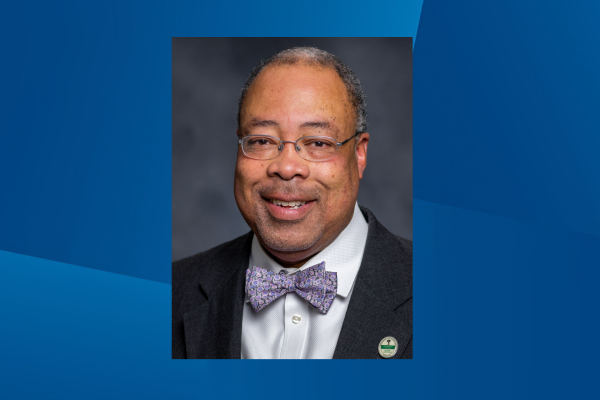
Olumide Danisa, MD, has joined the Duke Adult Spine Division as an associate professor of Orthopaedic surgery. Dr. Danisa earned his MD from the University of Virginia, an Orthopaedic and general surgery residency at the University of Virginia, and a combined Orthopaedic and Neurosurgery adult spine fellowship at Duke University. He is a board-certified Orthopaedic and Spine surgeon. His affiliations include North American Spine Society memberships, the American Academy of Orthopaedic Surgeons, the Musculoskeletal Transplant Foundation Medical Board of Trustees, and the American Academy of Orthopaedic Surgeons.
Welcome, Dr. Danisa!
____________________________
Q&A with Dr. Danisa
Q: What brings personal and professional joy?
A: I have been blessed with many opportunities in life. Every experience, even difficult ones, has given me valuable lessons from which to grow and be a better person, father, husband, friend, and doctor. My family is my greatest joy. I am a father and a husband, taking both roles very seriously. I approach my family life with passion. My relationship with my kids is a source of immense pride. My partnership with my wife is long-standing and deeply rooted in respect and love. My family understands and supports my career despite the demands of being a surgeon. I am beyond grateful to have the opportunity to provide for them.
I am also tremendously joyful because I still find great satisfaction in doing what I do for a profession. Taking care of patients is what I love to do. Orthopaedic surgery on the musculoskeletal system is tangible. I can see the results of my work. Surgery on the spine, to me, is even more substantive. I have done it for years, and I still love it. Patients come in with debilitating conditions, and I consider myself blessed to be allowed to make positive changes. How does that not bring joy to a surgeon?
I also derive tremendous joy from staying fit. Although I am no longer a college athlete, I love keeping my body and mind healthy. I encourage everyone to call me ‘Ollie.
Q: What excites you about your new role at Duke?
A: My role at Duke is ideal because I can work in one of the most prestigious medical institutions in the world. That renown is well-earned and results from Duke’s lasting reputation of excellence. As a result, I am privileged to work with gifted and dedicated faculty and support from the administration to make me outstanding in what I do. What is exciting is being in an academic community with trainees: residents, fellows, and medical students. As a medical student years ago, I looked upon my attending physicians with tremendous adulation of their gifts and talents. I, too, want the opportunity to inspire trainees. Finally, I want to continue my love of clinical research. I love asking questions, trying new things, and always trying to improve and contribute to the knowledge of my profession.
Q: Where is your hometown:
A: I am an immigrant. I was born in Lagos, Nigeria. I came to the United States as a child when our family accompanied my father to start his medicine residency at Yale University in the ‘70s. We moved with him during his training/fellowship in Cardiology and as he became an attending Cardiologist at the University of Oklahoma. All my education has been in the United States, from elementary school to undergraduate to medical school and postgraduate training.
For the past 13 years, I have been at Loma Linda University, held the title of Chief of Adult Spine Division, and held joint appointments in Orthopaedic and neurological surgery. I also attained the title of Vice Chairman of the Orthopaedic Surgery Department. I have also held titles in several memberships, including AAOS, NASS, ORS, MTF, and ABOS.
Q: What changes will your specialty see in the next five years?
A: Despite being in mid-career, I am very excited about the evolution of spine surgery and how I continue to learn and implement new techniques. So much has changed since I was at Duke as a Spine fellow 25 years ago. I have seen the evolution of more complex reconstructions, the transformation of minimally invasive procedures, same-day surgeries, improved understanding of spinal biomechanics and deformities, the use of technology such as computer-assisted surgery, and the use of artificial intelligence: machine learning and deep learning. All these changes are mind-boggling and bring out my inner science fiction nerd personality. In the next 5-10 years, spine surgery will have even more marvelous and incomprehensible feats. As spine surgeons, we are tasked to use reason and ensure that the new tools we acquire work in the best interests of our patients and humankind.